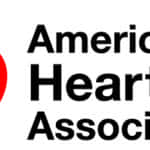
The American Heart Association says heart disease is a serious concern for people relative to COVID-19, but quote Dr. Mitchell Elkind, professor of neurology and epidemiology at Columbia University in New York City, in saying “It does not look like cardiovascular disease makes people more likely to get the virus, it’s more that it makes the course of it potentially worse.”
According to the CDC, as of May 30, 2020, among COVID-19 cases, the most common underlying health conditions were cardiovascular disease (32%), diabetes (30%), and chronic lung disease (18%). Hospitalizations were six times higher and deaths 12 times higher among those with reported underlying conditions compared with those with none reported.
Elkind is also President of the American Heart Association. “This virus can affect cells throughout the body,” he explained. It latches onto cells through an enzyme called ACE2, short for angiotensin-converting enzyme 2. ACE2 is found on all sorts of cell surfaces in the body – including lungs, heart, brain, gastrointestinal tract and the lining of blood vessels – that allows the virus to spread throughout the body. And that’s why we see so many cardiovascular and other manifestations of the disease.”
A Nature Medicine article in July with more than two dozen contributors (including Elkind) says COVID-19 is thought to contribute to irregular heartbeats, inflammation of the heart muscle, reduced blood flow to the heart and sudden cardiac death.
On August 14, the American Heart Association warned again about the use of hydroxychloroquine to treat COVID-19.
It said 23% of those hospitalized with COVID-19 have experienced severe cardiovascular implications, and that the Heart Association is committed to spending $2.5 million on research, in addition to additional additional grants awarded to help unlock the mysteries of the impact on the heart.
The American Heart Association says patients who are taking medications for their heart (or anything) should continue, and if anybody believes they are having a heart attack or stroke, they should absolutely call 9-1-1 and get to the Emergency Room immediately. The group also says it’s imperative for people to wear a mask around anybody with heart disease